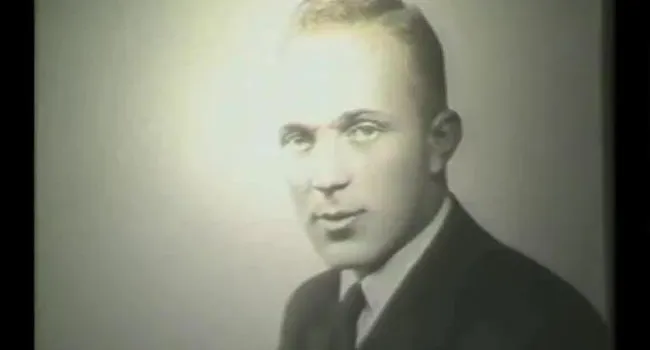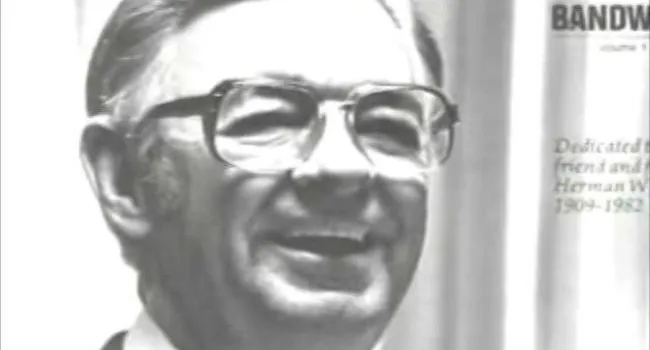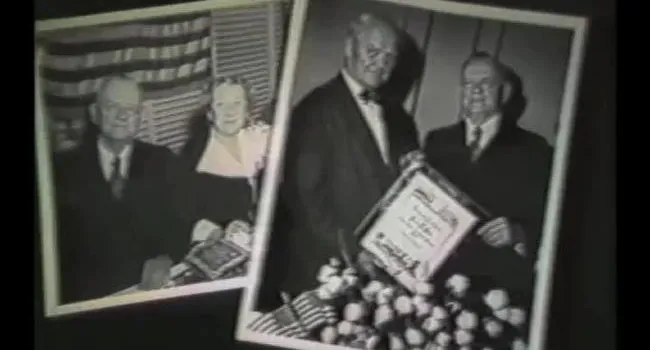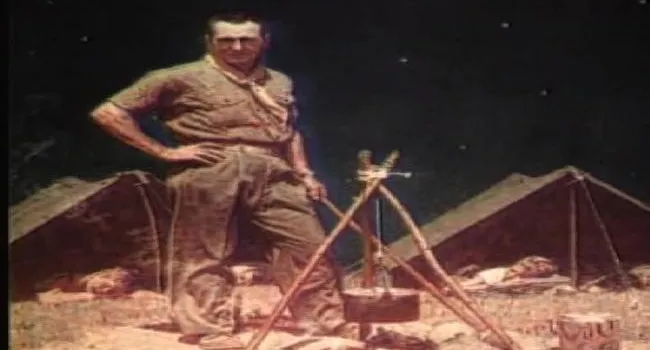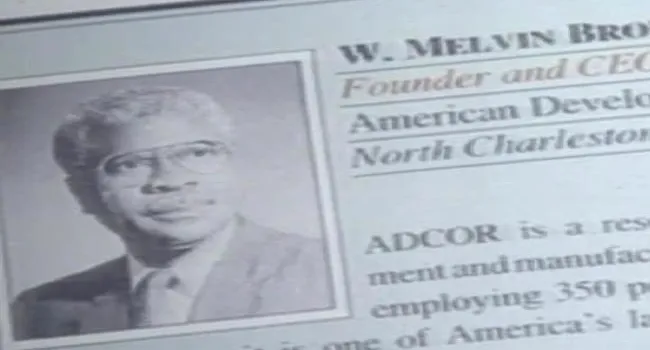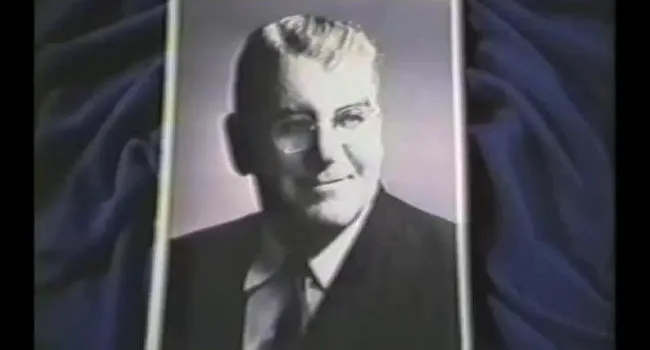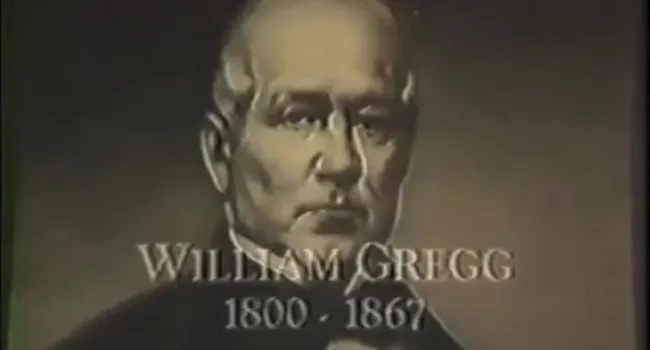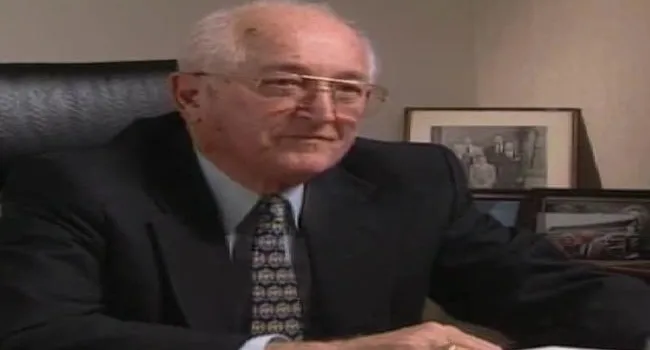Franklin G. Burroughs (1834–1897)
During the second half of the 19th century, Franklin G. Burroughs was one of Horry County's most successful business leaders, and even before the railroad ran past Conway, he dreamed of making Myrtle Beach a summer resort.
Burroughs and B. G. Collins owned much of the land stretching east from Conway, land they had purchased while building a successful turpentine and naval stores business. Records indicate that Burroughs and his partner operated one of the largest turpentine manufacturing businesses in the country.
Franklin Gorham Burroughs was born December 28, 1834, in Martin County, North Carolina, the son of Anthony and Ethelinda Cobb Burroughs. He first came to Conway as a young man on his way to settle in Tennessee. He had become frustrated with farming and had been offered two jobs, one from his father's relatives in Memphis, Tennessee, and another from Jim Pulley, an uncle in Horry County.
Burroughs left North Carolina with a gift of $40 from his mother and traveled to Conway in 1857. He began working in Pulley's mercantile business and turpentine still, but he was determined to support himself through his own enterprise.
Shortly after his arrival, he heard that the city of Conway was accepting bids for the construction of a bridge and gallows. He won the contracts, completed the projects, and decided that Conway would become his home.
Burroughs never spent the $40 he brought from North Carolina. Instead, he would pass the original coins down to his eight children: Effie Tolar, Franklin Augustus, Ruth Adeline, Ella Edith, Arthur Manigault, Sara Best, Don McNeil, and Lucille Norton.
In July 1861, with the onset of the Civil War, Burroughs volunteered as a private in the Brooks Rifle Guards, 10th Regiment, South Carolina Volunteers, and reported for duty with his unit at Camp Marion near Georgetown, under the command of Arthur M. Manigault. In August, the regiment was transferred from state service to the Confederate government. For nine months, the regiment was involved in coastal defense duty in the Georgetown area and saw little action.
In April 1862, the 10th South Carolina Regiment was transferred to the Western Army of Tennessee. Thereafter, Manigault's Brigade participated in some of the heaviest fighting of the Civil War, including the battles of Chickamauga, Missionary Ridge, Atlanta, Franklin, and Nashville.
Despite opportunities for advancement in rank, Burroughs chose to remain a private in the Infantry throughout the Civil War. He was captured at the battle of Nashville December 15, 1864. He was held prisoner of war at Camp Douglas near Chicago, where he and his fellow prisoners suffered terribly from the bitter cold.
On his way home from the war, Burroughs traveled through Greensboro, North Carolina, where he and other Confederate prisoners were quartered and cared for at the Greensboro Female Institute. Burroughs was so grateful for this hospitality that he pledged to send any daughters he might later have to school there.
Burroughs met Adeline Cooper of Conway shortly after returning from the war. They were married on November 15, 1866. He was 32, and she was 18. Eight of their 11 children survived infancy. All but one of their five daughters ultimately attended Greensboro Female Institute.
The same year he married, Burroughs expanded his original turpentine still and retail business. He broadened the scope of the business with a relative, William D. Gurganus, a native of Williamston, North Carolina, under the name Burroughs and Gurganus. Upon Gurganus' death in about 1870, his interest was bought by Hampton Hart and B. G. Collins, employees of Burroughs and Gurganus. Hart soon sold his interest to Collins.
In 1895, Burroughs and Collins incorporated as the Burroughs and Collins Partnership. The deed of incorporation called for 100,000 acres, more or less, and the stock consisted of 200 shares at $500 par value.
From 1895 to about 1900, the principal businesses of the company were manufacturing and naval stores, with mercantile stores in key locations around Horry County.
After the hurricane of 1893, which destroyed vast amounts of timber, the Burroughs and Collins naval stores business gradually declined, and real estate began to thrive.
Although the town of Myrtle Beach was actually founded after his death, Burroughs had shared with his children his dreams of a coastal resort almost exactly halfway between New York City and Miami, Florida. His sons, Frank, Don, and Arthur, built the railroad that opened Myrtle Beach to the world. His widow, "Miss Addie," named Myrtle Beach for the plant found in abundance there.
The Burroughs heirs, along with Simeon Chapin, built a tourism business and, in 1912, formed Myrtle Beach Farms as a real estate company that oversaw local development. The business continues today as the Burroughs and Chapin company, engaged in forestry, farming, land development, office development, shopping centers, the pavilion and theme parks, golf courses, and real estate sales and leases.
Franklin Burroughs died August 25, 1897.
He was inducted into the South Carolina Business Hall of Fame in 1993.
© 1999 South Carolina Business Hall of Fame















